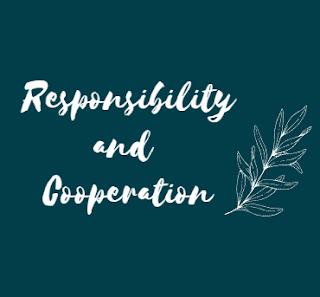Why is Responsibility an important trait?
Responsibility helps to raise our self-esteem, and our relationships with friends, family and co-workers improve ten-fold. Responsibility is essential because it makes you more productive. Without Responsibility, you are more likely to shirk your duties or miss deadlines. On the other hand, people who do not take Responsibility are usually quick to blame others when something goes wrong, even though they have a role in causing the problem. It can increase self-esteem because it encourages you to work harder at achieving desired results. This makes you feel more competent, which boosts your confidence and improves how others perceive you. One of the most essential benefits of Responsibility is that it teaches valuable life lessons. Responsibility helps you learn how to handle difficult situations, make good decisions, set goals, and achieve them. Responsibility is essential because it makes you into a better person. Life lessons are often taught through taking Responsibility for your actions, mistakes, and events in life. Responsibility teaches you to be responsible for other people’s safety, property, feelings, and emotions. These skills are essential for success in any area of life, from personal relationships to your career. Responsibility is an essential moral concept that helps to build strong character. When you are responsible, you act with integrity and honour, even when no one is watching.
How can you teach your students to be responsible in school, at home, and outside? Give at least 2 concrete examples in each case.
We can teach Responsibility to students at school while assigning them some vital duties, such as a monitor, cleanliness in-charge, Resource manager and time manager for group activities. We can teach students to maintain discipline when the teacher is not in class. We can teach mischievous students to share daily diaries in class groups. At home, we can teach them to take care of sick grandparents or help their mother with household chores on Sunday and father gardening.
How strong is the culture of cooperation in your classroom?
As I am class In charge of Grade V, I always encourage my students to be cooperative with each other. I made a buddy system in my class. In this system, average students are sitting with below-average students. Brilliant students help their buddies to complete their pending work; they do hand-hold. Even when below-average students are not giving answers, I always inspire them to repeat their buddy’s answers. In this way, gradually, the below-average students also gain confidence and a sense of cooperation increases daily. When some special assemblies are conducted, the buddies help each other understand the dialogues and gestures.
Jaspreet Kaur
Kamla Nehru Public School Happy Teachers JOL Cohort 2022

